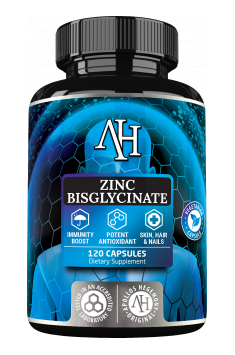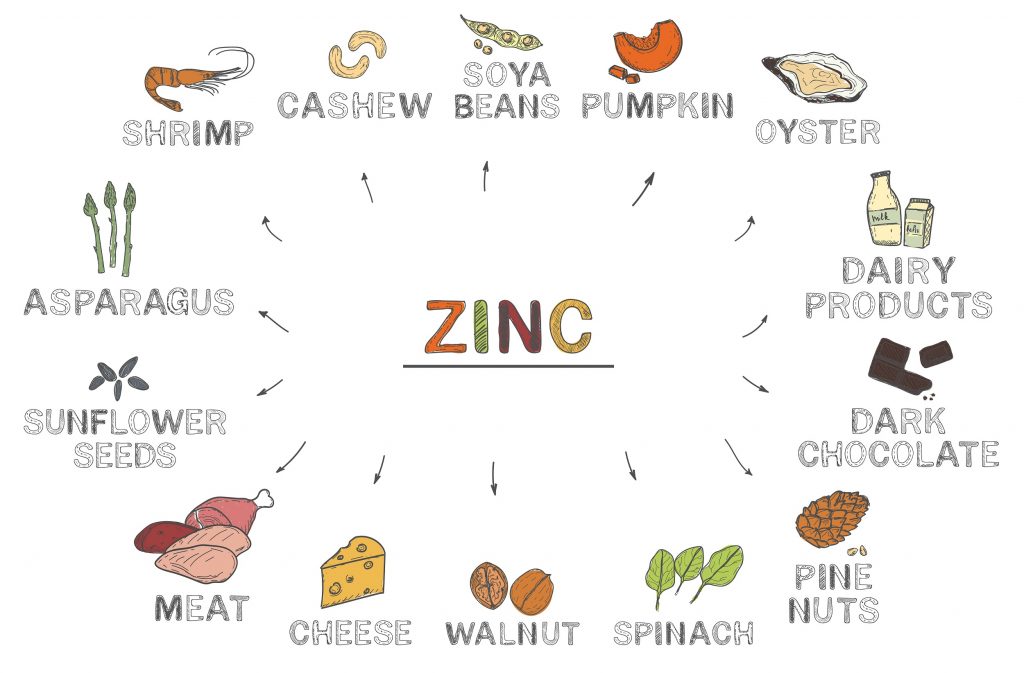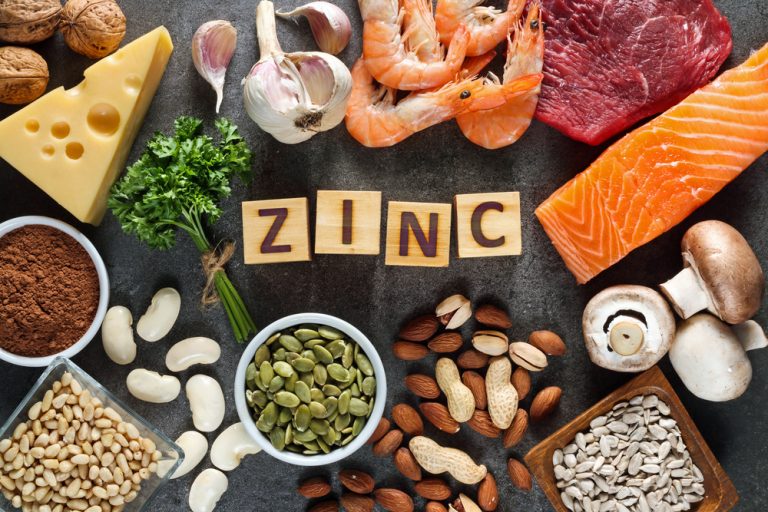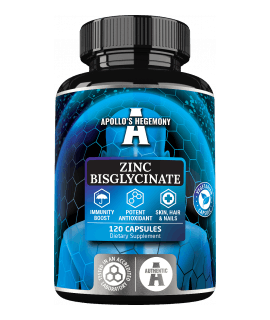Zinc is an element involved in many metabolical processes. As a component of enzymes, it participates in the metabolism of fats, carbohydrates and proteins. Also, it affects the proper functioning of the immune system, so it strengthens immunity and prevents the development of various infections. Zinc is also known to affect the reproductive system - it improves fertility, increases sperm production in men and helps regulate the menstrual cycle in women. It also protects men from cancer and other prostate diseases.
Properties of zinc
Zinc also improves brain function, thus improving memory, concentration and preventing dementia. In addition, this element is involved in enhancing the processes of wound healing and reducing skin irritation. So it has a strengthening effect on the skin, but also hair and nails. Speaking of the role of zinc in the body it is necessary to mention the antioxidant properties of zinc. This element is a strong antioxidant, destroying free radicals, which shields the body from their adverse effects.
In addition, zinc helps treat many diseases, such as diabetes, thyroid disease, inflammatory bowel disease, haemorrhoids, stomach or duodenal ulcers, or osteoporosis. It also participates in the proper functioning of the senses, especially taste and smell. Due to the numerous functions of zinc in the body, providing the proper amount of zinc in the diet is necessary to keep the body healthy and in good condition.
Zinc deficiency - symptoms and effects of lack of zinc in the body
This element performs many important functions, so it is necessary to ensure a proper supply of zinc in the diet. Its deficiency can cause severe disorders in the body. The most common symptoms of zinc deficiency are:
- lowered immunity, frequent, recurring infections
- lack of appetite
- inflammation of the skin and long-lasting wound healing
- hair loss, brittle nails
- dry mouth, abnormal taste and smell
- irregular menstrual periods
- problems with memory, concentration, constant fatigue

Besides, long-term zinc deficiency can result in anaemia, night blindness, growth retardation in children, digestive disorders, hormonal problems and infertility. It is also very important to ensure an adequate supply of zinc during pregnancy. Zinc deficiency in pregnant women poses a risk of miscarriage, preeclampsia, and low birth weight babies.
People whose diet deviates from the well-known principles of healthy eating may suffer from zinc deficiency. Low intake of foods that are a source of this element, high consumption of processed foods, iron, sugar and alcohol promote deficiencies of this mineral.
The groups of people particularly at risk of deficiencies include:
- people suffering from mineral malabsorption
- patients with kidney and liver diseases
- people who overuse on alcohol
- athletes
- people on restrictive diets for weight loss
- women using hormonal contraception
Zinc in food – where can we find zinc?
A diet rich in zinc must be rich in products that are a good source of zinc, which is primarily food of animal origin, although many plants also contain a large dose of zinc. Products rich in zinc are:
- offal
- meat and fish, oysters
- fish
- dairy products
- legumes - especially white beans, peas and green peas
- whole-grain cereal products
- pumpkin and sunflower seeds, almonds
- dark chocolate and cocoa
- eggs
- garlic, onion

Zinc absorption from the diet
It is worth remembering that zinc is absorbed to a greater extent from animal products - more zinc will be built into the structure of the body when consumed in combination with animal protein, rather than plant protein. Improved absorption of zinc from the diet can be seen by combining a product that is a source of zinc along with citric acid.
If the dietary zinc supply is too low, zinc supplements can also be included in the daily diet, especially if the diet excludes zinc-rich foods for some reason (e.g. health reasons). This also applies to vegans who do not consume animal products, from which zinc is much better absorbed than from plant sources.







